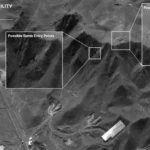
The pact between PSOE and Junts means “opening a new stage and contributing to resolving the historical conflict over the political future of Catalonia”, according to the document of the agreement to which elDiario.es has had access and which has been advanced by laSexta. To this end, this pact establishes a negotiation table between both parties that includes a mechanism to “accompany, verify and monitor the entire negotiation process and the agreements reached between both parties.”
In the political agreement signed last morning, the PSOE and Junts agree on the disagreements after many days of tug-of-war and give a different account of the events of the process. Thus, while for Puigdemont’s party the “result and mandate” of 1-O is “legitimate”, the socialists make clear their rejection of the “legality and validity of the referendum and the declaration of independence.”
In this political negotiation to which they commit from now on on the territorial fit of Catalonia, according to the signed agreement, two major issues will be discussed: “overcoming the deficits and limitations of self-government” and “those related to national recognition.” of Catalonia.” In the same agreement Junts already makes a declaration of intentions when it announces that it will demand an agreed referendum and a fiscal pact for Catalonia.
In the document signed and which will be officially presented this Thursday, the Catalan socialists and independentists confirm that both formations start from “divergent positions”, despite which they commit to developing “a dynamic for the resolution” of the conflict “in terms different from those of the last legislature and seek governability during the 15th legislature.”
In the document of the political agreement, which does not yet include the details of the amnesty law that will be presented next week, it is stated that the great cycle of pro-independence mobilizations has its origin in the ruling of the Constitutional Court of 2010 that overturned the statute. Catalan. “The ruling of the TC in 2010 meant that today Catalonia is the only autonomous community with a statute that has not been voted entirely by its citizens. As a reaction, there was a large protest demonstration and, since 2015, absolute pro-independence parliamentary majorities have been repeated in the Parliament in successive regional elections, as well as massive pro-independence mobilizations,” it is described.
The text continues pointing out the PP governments. “Unfortunately, the governments of that time did not favor political negotiation,” it is noted regarding the proposals before describing the events that occurred in 2017. “After these events, the Catalan institutions first promoted a popular consultation on November 9, 2014. and, later, an independence referendum on October 1, 2017 – both suspended and later annulled by the TC – with massive participation in favor of the independence of Catalonia. The Government’s attempt to prevent the referendum gave rise to images that shocked us all inside and outside our borders.”
“A historic opportunity”
In the second point of the document agreed between Junts and ERC, the groups led by Pedro Sánchez and Carles Puigdemont once again emphasize that, despite “the deep divergences that have existed and that have given rise to a conflict”, the shared conclusion is “that only politics in democracy can channel to find a solution, given that, six years later, the underlying issue remains unresolved.”
“Despite the structural discrepancies that exist given the distance between our national projects,” it continues, “we are prepared to open a new stage in which, based on respect and recognition of the other, a political and negotiated solution is sought. to the conflict.” Regarding these bilateral channels based on the negotiation between the Government of Spain and the Generalitat and between the PSOE and the Catalan independence parties, it is repeatedly insisted that “the resolution” of the conflict “must be negotiated and agreed upon”, an implicit resignation. to the unilateral path that characterized the outcome of the process in 2017.
However, the heading of the “agreements” section recorded in the document is striking. At that point, the two formations openly expose the profound differences regarding the political vision of what happened in 2017, with an explicit rejection by the socialists of the unilateral route and a mention of the illegality of the 1O referendum and that of the DUI, and a fiery defense of that process by Junts.
After weeks of negotiations, and in the absence of a common narrative, the document reflects the following: “Junts considers legitimate the result and mandate of the referendum of October 1, as well as the declaration of independence of October 27, 2017. On the other hand , the PSOE denies all legality and validity to the referendum and the declaration, and maintains its rejection of any unilateral action.” And yet, “they confirm that important agreements can be reached without giving up their respective positions.”
For the negotiation process that must now be opened, both parties admit that they are starting from a situation of “mutual mistrust”, in the face of which they agree on a mediation mechanism. “PSOE and Junts have agreed to establish an international mechanism between both organizations that has the functions of accompanying, verifying and monitoring the entire negotiation process and the agreements reached between both formations.”
Regarding the specific contents that will be the subject of negotiation from now on, the agreement focuses on “overcoming the deficits and limitations of self-government and those related to the national recognition of Catalonia.” And the topics to be addressed are limited in a first meeting that is already set for this month of November.
“Junts will propose holding a self-determination referendum on the political future of Catalonia protected by article 92 of the Constitution.” A proposal that the PSOE rejects outright: “For its part, the PSOE will defend the broad development, through the appropriate legal mechanisms, of the 2006 Statute, as well as the full deployment and respect for the institutions of self-government and the singularity institutional, cultural and linguistic of Catalonia”.
In the self-government chapter, it is reflected that “Junts will propose from the outset a modification of the LOFCA that establishes an exception clause for Catalonia that recognizes the uniqueness in which the institutional system of the Generalitat is organized and that facilitates the transfer of 100% of all the taxes paid in Catalonia. And, for its part, the PSOE will support measures that allow financial autonomy and access to the Catalan market, as well as a unique dialogue on the impact of the current financing model on Catalonia.”
In the absence of closing a global agreement with the rest of the formations that will support the investiture regarding the amnesty law, the pact between Junts and the PSOE defends the grace measure “to ensure full political, institutional and social normality as a requirement essential to address the challenges of the immediate future.”
“This law must include both those responsible and the citizens who, before and after the 2014 consultation and the 2017 referendum, have been the subject of decisions or judicial processes linked to these events,” he continues, before referring to one of the main obstacles that have delayed the negotiation in recent days. “They will be taken into account in the application of the amnesty law to the extent that situations included in the concept of lawfare or judicialization of politics may arise, with the consequences that, where appropriate, may give rise to liability actions or legislative modifications. ”.
“The amnesty law has been agreed upon,” explained this Thursday the ‘number 3’ of the PSOE, Santos Cerdán, at a press conference from Brussels, where he clarified that before its registration “the rest of the groups have to see it” They are going to support her. “That’s why we didn’t present it,” he clarified. What has happened during the week due to the accusations of terrorism against Carles Puigdemont has been decisive in forcing the parties to re-read the amnesty law. However, Santos Cerdán has assured that the “law is agreed upon.” Now it is “the rest of the parties” that will support the investiture “that have to review it,” reports Irene Castro.
The agreement finally contemplates Junts’ support for the investiture of Pedro Sánchez as well as “for the stability of the legislature, subject to the progress and compliance of the agreements resulting from the negotiations in the two permanent areas indicated in the second point. ”.
Fifteen weeks of negotiations
As elDiario.es announced, PSOE and Junts announced this Thursday the political pact that will allow Pedro Sánchez to guarantee the investiture in a Plenary Session of Congress that will be convened next week. The amnesty law, the main pact between both forces and the one that has delayed its final closure the most, will also be presented and registered next week.
The agreement occurs 15 weeks after the elections and 18 days before the deadline expires – the next day the 27th – after which new general elections would be automatically called for January. Regarding the amnesty, after delaying the talks in recent days due to several obstacles regarding the perimeter of the grace measure, the negotiating teams located in Brussels, where the former president of the Generalitat and MEP Carles Puigdemont resides, have completed the issues. pending and have agreed that the officialization of the investiture pact will take place this Thursday, in the middle of a very harsh political and judicial offensive in recent days, spiced with ultra-violent protests at the doors of the socialist headquarters.
Today’s pact comes after the failed investiture process of Alberto Núñez Feijóo, who failed in his attempt to be sworn in as president on September 29, by not achieving more ‘yeses’ than ‘noes’ in the Congressional vote in which He only obtained the support of Vox, the Canarian Coalition and the UPN, in addition to that of his own deputies.
This Wednesday, Sánchez had launched a call for an investiture agreement in the midst of an escalation of harassment of the socialists. “Events like the ones we are experiencing reaffirm, even more strongly, the need to move forward with a progressive coalition government,” he said.
Source: www.eldiario.es

